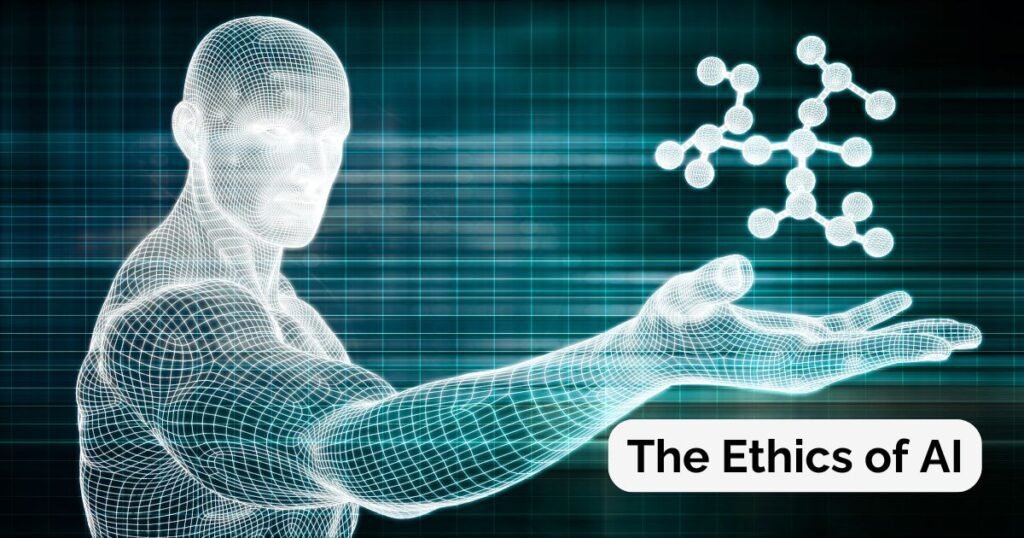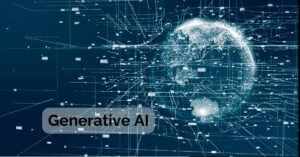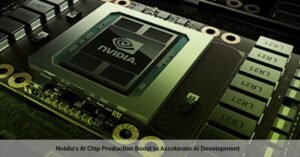
July 19, 2024

AI ethics can be defined as a comprehensive and evolving set of moral principles that guide the development, deployment, and use of artificial intelligence.
It’s essentially a framework to ensure AI is brought into the world and implemented in a responsible, ethical, and socially beneficial way.
This framework addresses the potential risks and pitfalls that can arise when creating and using powerful AI systems, with the ultimate goal of ensuring AI benefits humanity as a whole.

AI ethics is crucial for ensuring that artificial intelligence is developed and used in a responsible way that benefits society. Here are some key reasons why:
Reduces Bias and Discrimination: AI systems can inherit biases from the data they’re trained on, leading to discriminatory outcomes. AI ethics promotes methods to mitigate bias and ensure fairness in AI decisions.
Protects Privacy: AI systems often handle sensitive data. AI ethics emphasizes the importance of data privacy and security, safeguarding personal information from misuse.
Increases Transparency: Complex AI systems can be difficult to understand. AI ethics encourages transparency in how AI arrives at decisions, allowing for scrutiny and building trust.
Ensures Safety and Security: AI is increasingly being used in critical areas like healthcare and transportation. AI ethics stresses the importance of robust and secure AI systems to minimize risks and potential harm.
Builds Trust: By addressing these concerns, AI ethics helps build public trust in AI technology, encouraging its responsible adoption and integration into society.
In short, AI ethics are the guiding principles that ensure AI is a force for good, benefiting humanity and avoiding potential pitfalls.
AI Ethics are a set of guidelines to ensure that Artificial Intelligence is developed and used responsibly. Here’s a breakdown of some key principles:
These are just some of the core principles of AI Ethics. As AI technology continues to evolve, these principles will need to be continuously reviewed and updated.
Ensuring ethical AI is a complex but crucial task, requiring vigilance throughout the development and use of AI systems. These are just some of the guiding principles. Organizations like UNESCO and Microsoft have developed frameworks for ethical AI
Data
Development
Deployment
AI ethics are a crucial aspect of ensuring that artificial intelligence is developed and deployed for the greater good. Here’s a detailed breakdown of its benefits:
Reduced Bias and Discrimination:
Enhanced Privacy and Security:
Transparency and Explainability:
Safer and More Reliable AI Systems:
Societal Well-being and Public Trust:
AI ethics are not just about avoiding harm, but about harnessing the full potential of AI for good. By prioritizing fairness, transparency, security, and accountability, we can ensure that AI serves humanity in a safe, beneficial, and trustworthy way.
The future of AI ethics is likely to be a complex and evolving landscape, but there are some key trends we can expect to see:
Increased Focus on Responsible Development: As AI becomes more integrated into our lives, there will be a growing pressure on companies and organizations to develop and deploy AI responsibly. This means ensuring fairness, transparency, and accountability in AI systems.
Regulation and Standards: Governments around the world are starting to develop regulations and standards for AI development and use. This will help to ensure that AI is used safely and ethically.
Advancements in AI Explainability: Researchers are developing new techniques to make AI systems more explainable. This will allow us to better understand how AI systems make decisions and identify potential biases.
Open Source Solutions and Collaboration: There is a growing movement towards open source AI development. This can help to ensure that AI is developed for the benefit of all, not just a select few.
Ethical Considerations Throughout the AI Lifecycle: The conversation around AI ethics will move beyond just the development phase. We will need to consider the ethical implications of how AI systems are used, maintained, and eventually decommissioned.
There are a number of organizations that are working to promote AI ethics. Here are a few examples:
These are just a few examples of the many organizations that are working to promote AI ethics. As AI continues to develop, it is important to ensure that it is used in a way that is fair, just, and beneficial to society.
Prioritizing AI ethics we can ensure this powerful technology uplifts humanity. Imagine a world where AI helps doctors diagnose diseases more accurately, personalized education for every child, and tackles global challenges like climate change. This is the future we can build if we focus on developing and using AI ethically.
The road ahead requires ongoing collaboration between researchers, developers, policymakers, and the public. We can shape a future where AI serves as a force for good. The choice is ours: to experience AI ethics and build a brighter tomorrow, or to let the potential downsides overshadow the immense benefits. Let’s choose wisely.








@2023-2024-All Rights Reserved-JustAiTrends.com